
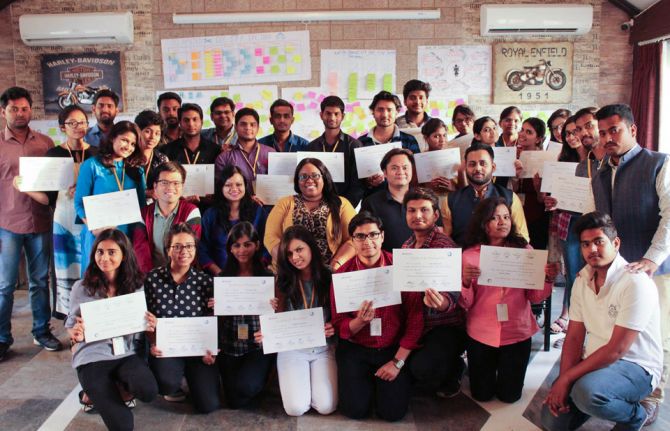
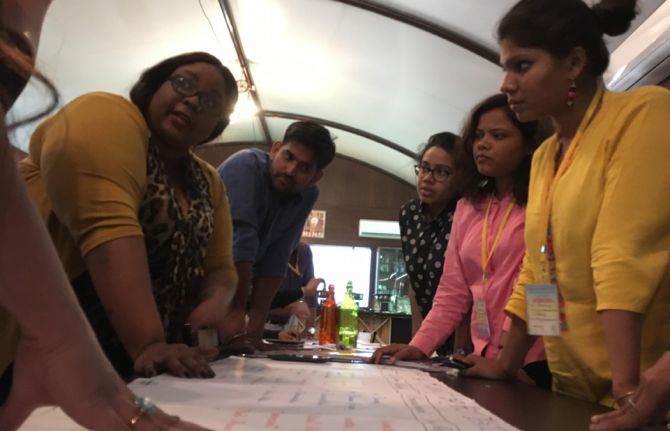
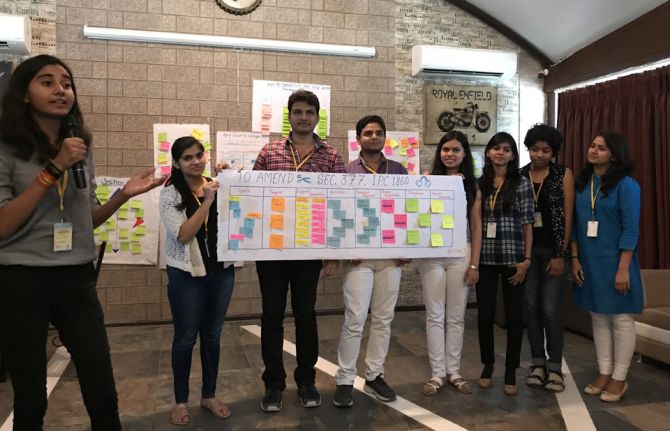
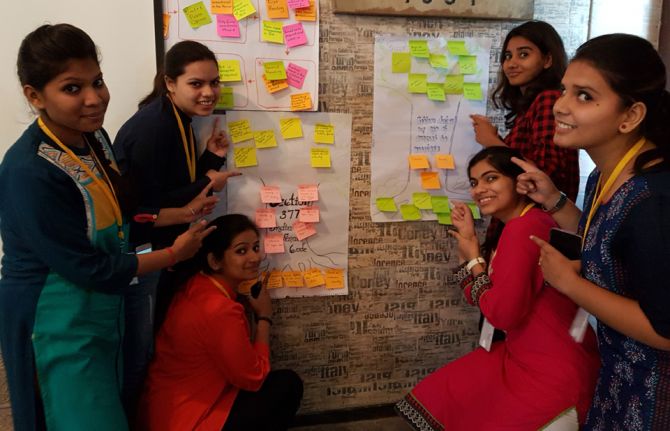
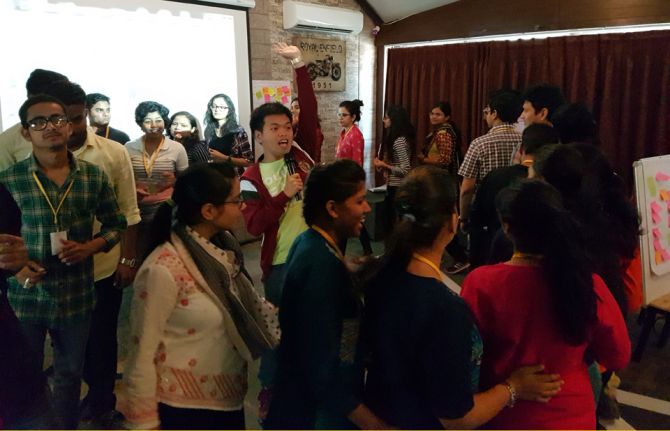
Update
Health workshop educates youth in India
24 March 2017
24 March 2017 24 March 2017Ayushi Tripathi is a student at Banaras Hindu University in Varanasi, a city in India’s northern state of Uttar Pradesh.
She explains that she comes from a family where talking about sex is taboo. “We never talk about it at home. Even seeing an advertisement about condoms is uncomfortable for my parents,” she said. But nonetheless, she was intent on attending a youth health workshop.
This week, she joined 27 other students for a three-day workshop to raise young people’s awareness of their sexual and reproductive health and rights. The training was led by the Dove Foundation, a youth-led organization based in Varanasi and supported by UNAIDS. The advocacy materials used were developed by the PACT, a global coalition of 25 youth networks working on HIV and sexual and reproductive health and rights.
“When I was younger, I didn’t have knowledge on where to get information and access to HIV services,” Ms Tripathi said. “Until I took this workshop, I had no idea that young people in India face challenges in accessing HIV testing and services.”
Monique Long from the Jamaica Youth Advocacy Network led the training, which provided youth and adolescents with the skills and information necessary to tackle the different barriers affecting their health.
“Working with this diverse group of intelligent and energetic young people reminds me of why we say youth are the future. This training also reaffirms that youth right here and right now have the capacity and the will to do amazing things to change the world,” Ms Long said.
Asia and the Pacific is the region with the largest number of young people in the world. In the region, people are starting sex at an increasingly younger age and having multiple sex partners, placing young people at higher risk of HIV.
During the training, the participants stressed how many countries are not tailoring their programmes to young people. For example, India requires people under 18 years old to have parental consent for HIV and other sexual and reproductive health services. Comprehensive sexuality education is often not taught in schools. The low levels of HIV knowledge and discrimination faced in health-care settings further exacerbate the situation.
The PACT and UNAIDS have been working with governments and other partners in advocating for the revision and reform of age of consent laws. The training provided young people with the techniques and skills needed for prioritizing advocacy issues, mapping different stakeholders, crafting key advocacy messages and lobbying.
“UNAIDS knows that the future of the HIV response lies in the hands of young people,” said Aries Valeriano, Youth Officer at the UNAIDS Regional Support Team for Asia and the Pacific. “We are working hand in hand with youth organizations and community groups to break down the barriers that young people face and that keep them from staying healthy and productive.”
After completing the workshop, Ms Tripathi said she plans to start a community of advocates at her university to push for ending the age of consent laws in India. As Ms Tripathi received her completion certificate, she beamed. “The workshop helped to open my eyes on social activism,” she said. “I am so inspired and hope to really influence policies in my university and beyond.”
UNAIDS is working to ensure that the target in the 2016 United Nations Political Declaration on Ending AIDS of ensuring that 90% of young people have the skills, knowledge and capacity to protect themselves from HIV and have access to sexual and reproductive health services by 2020, in order to reduce the number of new HIV infections among adolescent girls and young women to below 100 000 per year, is met.



